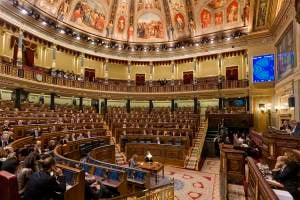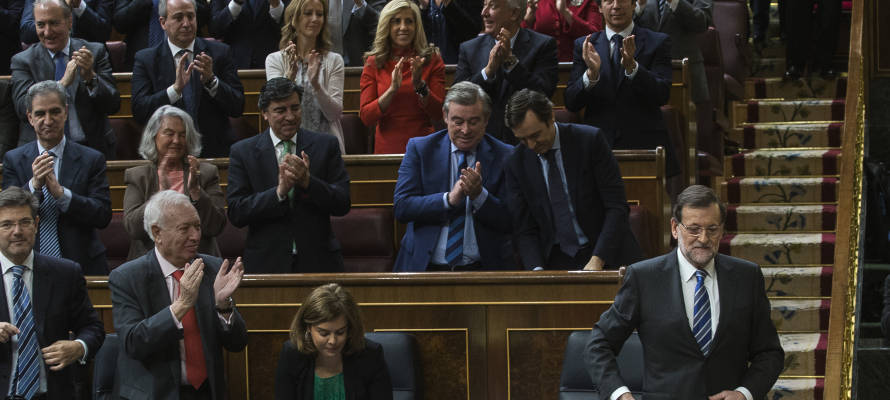
A view of the Spanish Parliament. (AP/Daniel Ochoa de Olza)
Spain’s Chamber of Deputies on Thursday approved a law aimed at granting citizenship to descendants of Sephardic Jews who were expelled during the Spanish Inquisition.
Spain’s lower house of parliament gave final approval Thursday to a law setting a citizenship path for descendants of Jews forced to flee the country after all Jews were told in 1492 to convert, go into exile or risk being burned at the stake.
Lawmakers approved it in positive votes to a series of amendments, so there was no single vote tally.
The law allows Sephardic Jews to start applying for Spanish citizenship in October, granting them a three-year window to seek a Spanish passport complete with the right to work and live anywhere in the 28-nation European Union.
Spain’s vote followed Portugal’s March approval of a similar citizenship plan for Sephardic Jews whose ancestors were forced to leave that country.
Many would-be applicants thought the Spanish law in the works since 2013 would carry few requirements beyond thorough vetting of applicant ancestry by Jewish organizations. That’s the case with the Portuguese law, which was proposed after Spain’s but went into effect in March 1.
But Spanish lawmakers ended up drafting a citizenship process for Sephardic Jews similar to that faced by permanent residents seeking Spanish citizenship.
The hurdles are significant: Sephardic applicants must learn and be tested in basic Spanish and must also pass a current events and culture test about Spain.
And they must establish a modern-day link to Spain, which can be as simple as donating to a Spanish charity or as expensive as buying Spanish property.
The Spanish Jewish federation has received more than 5,000 requests for information about the Spanish law. No one knows how many people might be eligible, though some estimates run into the millions.
Sephardic Jewish descendants in counties such as Venezuela and Turkey, who have faced rising levels of anti-Semitism and persecution in recent years, are seen as among those who are likely to apply for Spanish citizenship.
On the floor of the parliament, Spanish Minister of Justice Rafael Catala and Foreign Minister Jose Manuel Garcia-Margallo both declared that the historic decision is “repairing a 500-year injustice,” El Pais reported.
In a statement, the Federation of Jewish Communities in Spain (FCJE) said the law began a “new stage in the history of the relationship between Spain and the Jewish world; a new period of encounter, dialogue, and harmony.”
“Contrary to what one might think, the descendants of those expelled not harbored feelings of hatred or resentment but rather the contrary, they cultivated a deep love for the land they were from and intense loyalty to tradition and language received of their elders,” FCJE added.
Israel’s Foreign Ministry spokesman, Emmanuel Nahshon, praised Spain following the votes for finishing “its historic duty to the descendants of Jews expelled from Spain.”
By: Alan Clendenning, AP. With files from JNS.org.
